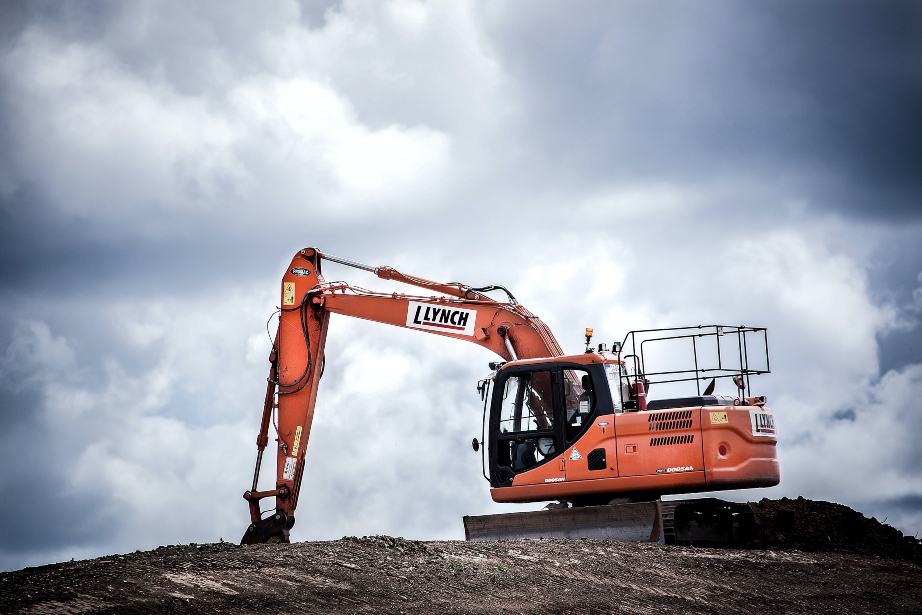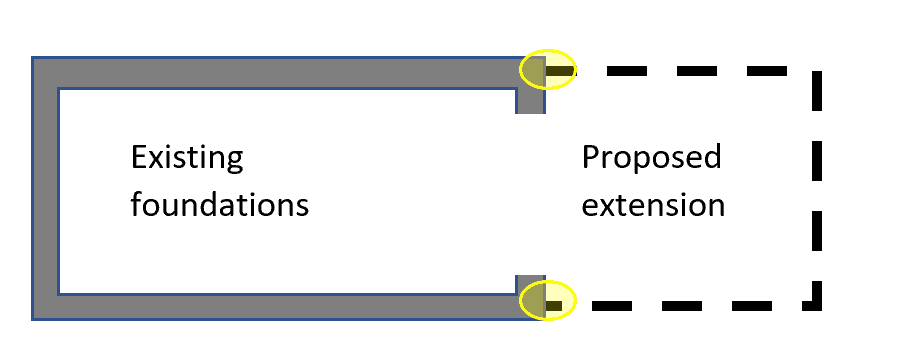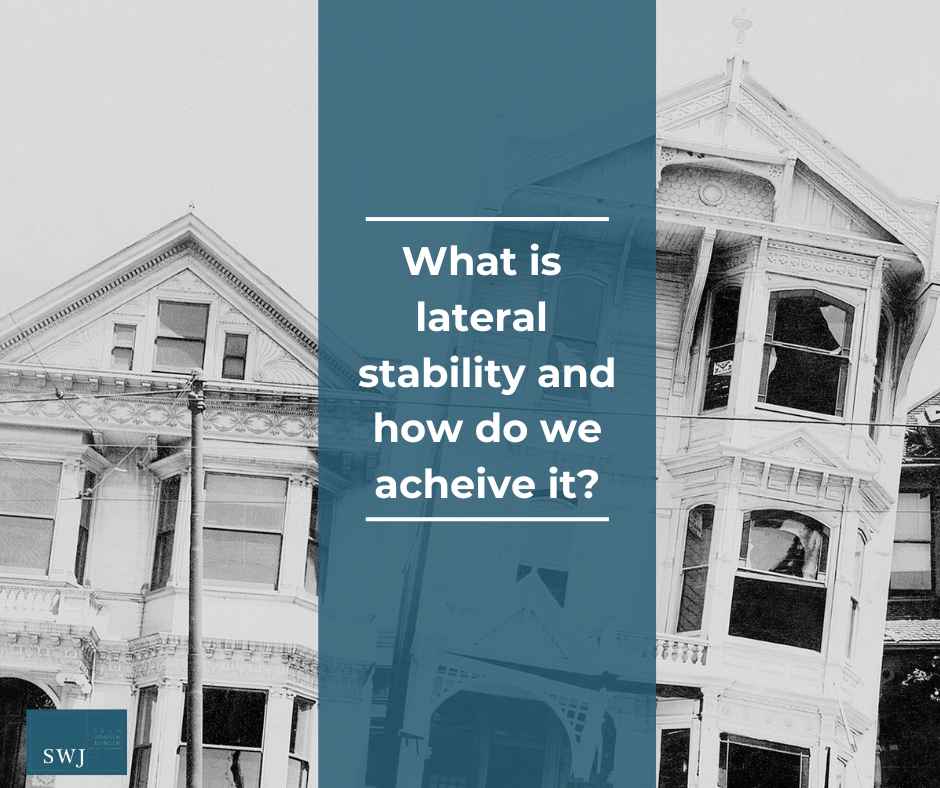If you are considering an extension it might be necessary to have a trial pit dug (essentially a hole) to establish how deep your foundations are, how strong they are and the geological and water content of the ground. Trial pits will not only inform the structural design of your extension but will help protect your budgets and timescales in the long run.
A site visit is the first step in most structural engineering design projects. To complete this thoroughly a trial pit or series of pits maybe required so make sure you establish if one is needed before your engineer attends.
We generally need to know two measurements, A – the width of the foundations outstand and B – the depth of your foundations.
Why do I need a trial pit?
It is vitally important that you/we know that your existing foundations are of sufficient size to withstand any additional load. Knowing their existing size will help to protect timescales and budgets and understanding the geology and ground water levels of the location will enable your structural engineer to design your extension accordingly.
- Foundation Strength. A common design feature of an extension is to form a large opening in the existing rear wall of the property to allow open plan living. It is important to ensure that the existing foundations, particularly at the highlighted points are strong enough to bear the additional load.
- Budget and timings. If you assume that your existing foundations are 900mm deep and obtain a price for ground works to build new foundations to the same, but then discover that your foundations are actually 2.5m deep, you will be looking at unexpected additional costs and delays for more excavation and more concrete.
- Mitigation of unexpected issues. Understanding ground conditions. A trial pit will enable us to determine how much water (if any) there is in the ground you are planning to build on. Understanding the geology of the site is also crucial in the early stages and it will inform on the best type of construction method to use for the project. Knowing and understanding the geology and water levels within the ground will enable you/your contractors to make informed decisions e.g. knowing if excavation walls will remain stable or digging into bedrock is going to be time consuming and expensive.
You may not need a trial pit if your house is relatively new
If your house was built after 1994 you will have been given as-built drawings on purchase as part of the 1994 CDM regulations.
Alternatively, if you have an NHBC warranty you may be able to access plans or through Building Control. Building control regulations came into force in 1985 and the detailed requirements of building regulations in England (and Wales) were scheduled within 16 separate headings so it might also be possible to find drawings and plans for homes built after 1985.
If you have access to information on your existing foundations, you may not need to dig a trial pit.
Getting ready to dig a trial pit?
Our recommended dos and don’ts.
- DO consult with a structural engineer on where you need to dig your trial pit
- We recommend that you DON’T attempt to dig the trial pit yourself if you don’t have any experience excavating. If you have deep foundations you need to make sure the excavation is safe and that you have a enough space when you batter the slope to keep the site safe
- DO engage a ground worker or your intended building contractor to dig it for you. It is a great way to find out how they work and if they would be suitable to deliver your entire project
- DO excavate to the bottom of the existing foundations
- DO NOT excavate beyond the existing foundation
- DO have the soil from the excavation piled nearby so that your structural engineer can inspect it.
- DO record the level of any water in your trial pit. As soon as you strike any water you need to take a measurement of that level.
- DO keep your trial pit covered to prevent anyone falling in it.
- If possible DO have your trial pit dug immediately before your structural engineer’s visit.
- DO establish the location of any buried services, drain pipes or known underground obstructions.
If you have any further questions please give us a call on 01993 225 085 or email us on mail@swjconsulting.co.uk






